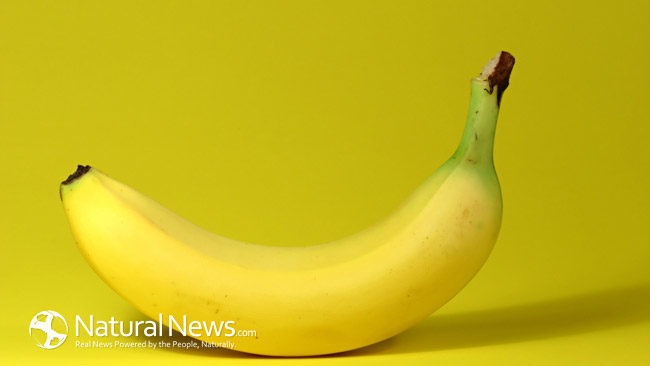I once clumsily offered a banana (with a heart full of love) to someone that became rapidly deficient in potassium as a result of a crack overdose. It seems I was offering more to him than increased potassium, as you will discover below. This bad boy is full of nutrients and offers heaps of value to the health of the body overall. Should we be eating 40 bananas a day? Maybe so when thriving in climates where the banana grows in your backyard it makes sense. But, for those that import these yummy yellow treats, perhaps a couple a day won’t hurt. You decide.
Banana Facts We Know, And A Little We May Not
One of the oldest cultivated plants, bananas pack a nutritional punch in each yellow package. Most people are aware that bananas are a great source of potassium, which keeps the muscles working properly, decreases the risk of stroke, and lowers blood pressure in individuals with potassium deficiency (1). Bananas also contain vitamins A, B6, C, and D (1). Delicious and easy to digest regardless of whether eaten raw or cooked, bananas increase mental clarity, provide energy, and even help improve one’s mood (1). The tryptophan, norepinephrine, and serotonin in the fruit keep depression at bay and promote feelings of well-being and relaxation (2).
Improved Digestion
Another reason to eat more banana is that it helps treat both constipation and diarrhea (1). Thanks to its rich nondigestible fiber content, the tropical fruit can restore normal bowel function (1). In addition, bananas are an excellent source of fructooligosaccharide, a prebiotic compound that nurtures the colon’s beneficial probiotic bacteria (1). These friendly bacteria produce vitamins and digestive enzymes that assist the body in absorbing nutrients and protect against harmful microorganisms (1).
In a study of 57 babies with diarrhea for 14 days or more, the subjects were fed rice and green banana, rice and apple pectin, or just rice for a week. The babies that were given green banana and apple pectin had 50 percent lighter stools, which meant that they absorbed more nutrients from their food (1).
See Why This Guy Opted For An Apple Over A Banana
Healthy Heart and Bones
Bananas also protect the cardiovascular system. A single banana has 467 mg of potassium, and it is said that eating bananas regularly may help prevent atherosclerosis, stroke, and hypertension (2). In fact, doctors in India have learned that consuming 2 bananas a day for a week can reduce blood pressure by 10 percent, and an earlier American study found that eating 5 bananas a day was 50 percent as effective as taking blood pressure medications (3).
Moreover, potassium may prevent high excretion of calcium in urine (1) and fructooligosaccharides enhance calcium absorption (2), thus promoting bone health.
Good for Kids and Babies, Too
Easily digested and rarely causing allergic reactions (1), bananas are the best food to introduce to babies who are transitioning to solid foods. Just one mashed ripened banana provides baby with potassium, fiber, magnesium, calcium, selenium, phosphorus, iron, folate, niacin, pantothenic acid, and vitamins A, B2, B6, C, and E (1). A study has also shown that increased consumption of bananas and apple juice from concentrate prevents wheezing in children (1). Furthermore, bananas are a component of the BRAT diet, which is recommended for children with diarrhea and other digestive problems (1).
Sources for this article include:
(1) http://www.phytojournal.com/
(2) http://www.naturalnews.com/
(3) https://www.msu.edu/





